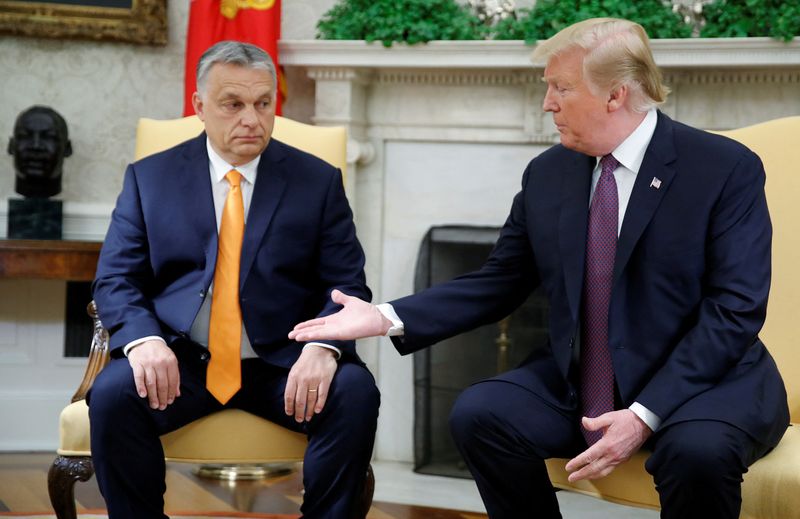The political landscape in Hungary is facing significant ramifications following Donald Trump’s recent electoral victory, according to analysts Gergely Szakacs and Karin Strohecker. While Trump’s win may present a political advantage for Hungarian Prime Minister Viktor Orban, the economic repercussions could prove detrimental for the country. Specifically, Trump’s potential implementation of higher tariffs could exacerbate existing inflationary pressures linked to the struggling Hungarian forint, which has already been underperforming. Following a rate cut by the Hungarian central bank in September, the forint has weakened further, reaching levels reminiscent of 2022 when emergency measures were taken. Financial strategists caution that if Trump follows through with aggressive tariff policies on China and Europe, Hungary’s currency could face additional downward pressure, which would complicate the central bank’s monetary policy decisions moving forward.
The interconnectedness of Hungary’s economy with the European auto sector heightens the risks posed by Trump’s tariffs. The European Commission is actively assessing the potential impacts of increased tariffs across the bloc, particularly on major car-producing countries like Germany and Italy, which are significant trade partners for Hungary. Central European nations, including Hungary, channel a substantial proportion of their exports to Germany, emphasizing their vulnerability to potential U.S. trade barriers. Financial institutions such as Nomura have indicated that Germany could bear the brunt of these tariffs compared to other euro area countries. As a consequence of the evolving economic landscape, investor sentiment has shifted dramatically, with anticipated rate cuts in Hungary being essentially eliminated just weeks after they were forecasted.
Investor confidence in Hungary has also been shaken by the political climate surrounding Orban’s leadership. Analysts suggest that Orban’s government has placed increasing pressure on the central bank to pursue aggressive rate cuts to stimulate economic growth, especially as the 2026 elections approach. Finance Minister Mihaly Varga, who is poised to become the next governor of the central bank, has acknowledged the need for cooperation with the government while emphasizing that controlling inflation should be the bank’s priority. However, the potential conflict between maintaining policy independence and responding to political pressures adds complexity to economic decision-making in Hungary.
Concerns are mounting that the incoming central bank leadership, aligned with the Orban administration, may prioritize expansionary policies that could further destabilize the forint and provoke inflationary pressures, which surged beyond 25% last year. Viktor Szabo, a fund manager, pointed out the critical choice facing the new governor: to adhere to the central bank’s mandate of price stability or to yield to political demands for increased economic stimulus. This precarious balance underscores the central bank’s credibility, as it contemplates its future policy stance amid external economic pressures and internal political expectations.
Market analysts predict that the forint may test its record lows from late 2022 due to compounded risks encompassing Trump’s potential tariffs, local geopolitical instability, and a sluggish national economy. The outlook for the Hungarian currency remains bleak, characterized by a persistent vulnerability to shifts in global trade dynamics, especially given the country’s high reliance on the auto manufacturing sector and substantial Chinese investments. Notably, Barclays economists have reiterated that the forint is the most susceptible currency in Central and Eastern Europe (CEE) amidst the prevailing economic uncertainties.
In summary, while Donald Trump’s victory may welcome political opportunities for Viktor Orban, the economic realities paint a more challenging picture for Hungary. Analysts highlight the potential consequences of Trump’s trade policies on the Hungarian forint and overall economic stability, with compounded pressures from domestic political dynamics and an interconnected European economy. As the nation navigates these complexities, the upcoming leadership change at the central bank represents a pivotal moment that could influence the degree to which Hungary manages to maintain economic credibility and control inflation moving forward.

